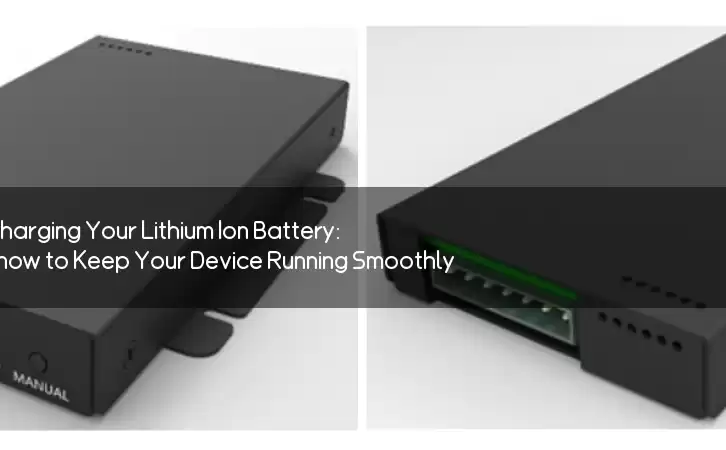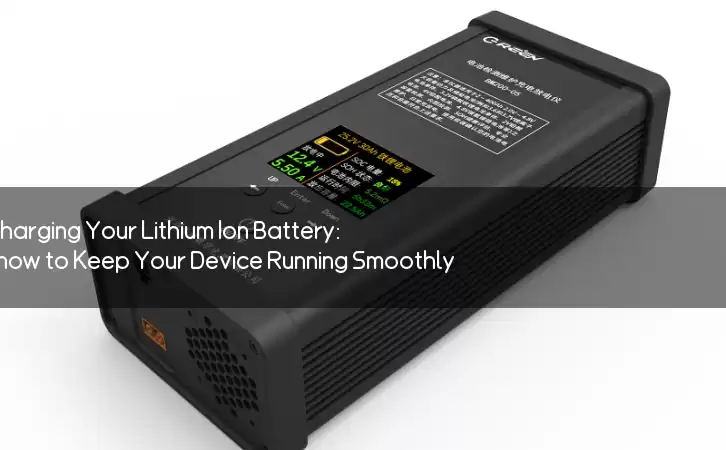Information Center
The Ultimate Guide to Charging Your Lithium Ion Battery: What You Need to Know to Keep Your Device Running Smoothly
Published:2023-04-25 19:44:02 Author:Green WCND Views:75Lithium ion batteries have become a popular choice for electronic devices due to their energy density and longevity. As a result, it’s important to ensure that the right chargers are used to keep these batteries charged and functioning optimally.

Firstly, it’s essential to understand that not all chargers are designed to work with lithium ion batteries. This is because these batteries have unique charging requirements that differ from other battery types. For example, using a charger designed for nickel-cadmium batteries can overcharge and damage a lithium ion battery.

So, what chargers work with lithium ion batteries? The good news is that there are different types of lithium ion chargers available on the market that are designed to cater to the specific needs of lithium ion batteries.
One of the most common types of lithium ion chargers is the USB charger. These are compatible with a wide range of electronics, including smartphones, tablets, and laptops. USB chargers use a voltage of 5 volts and a current of up to 2.4 amps to charge the battery. However, it’s important to note that not all USB chargers are created equal. Some offer a slower charging rate, while others have a fast charging rate, which can reduce the life span of the battery if used excessively.
Another type of lithium ion charger is the wall adapter. These work similarly to USB chargers, but they are specifically designed to plug into a wall socket. These type chargers are commonly used for charging laptops, power banks, and other electronics that require larger batteries.
However, it’s important to note that not all chargers with the same rated voltage and current can work with lithium ion batteries. It’s advisable to refer to the manufacturer’s instructions for recommended chargers or purchase a charger that’s compatible with the specific device and battery.
To ensure the longevity of the battery, it’s important to use the recommended charger and not to overcharge. Lithium ion batteries are sensitive to high temperatures, and overcharging can generate heat that can cause the battery to degrade faster.
In conclusion, when it comes to charging lithium ion batteries, one must be cautious and use the recommended charger. USB chargers and wall adapters are the most commonly used types for lithium ion batteries, but it’s important to ensure that the charger is compatible with the specific device and battery. Additionally, it’s important to not overcharge the battery to ensure optimal functioning and longevity.
Power Adapter Design and Customization Guide for Portable Electric KettlesI. Common Design Types for Portable Electric Kettle Power AdaptersPortable electric ke···
I. Common Design Types of Power Adapters External Independent Type (Most Common) Design: A standalone adapter (e.g., "black brick") connected to the p···
Handheld Vacuum Cleaner Power Adapter Selection GuideIntroductionHandheld vacuum cleaners have become a mainstream tool for household cleaning due to their port···
Drill Power Adapter Selection Guide.drill-container { font-family: Arial, sans-serif; line-height: 1.6; max-width: 800px; margin: 0 auto; padding: 20px; } .dril···





